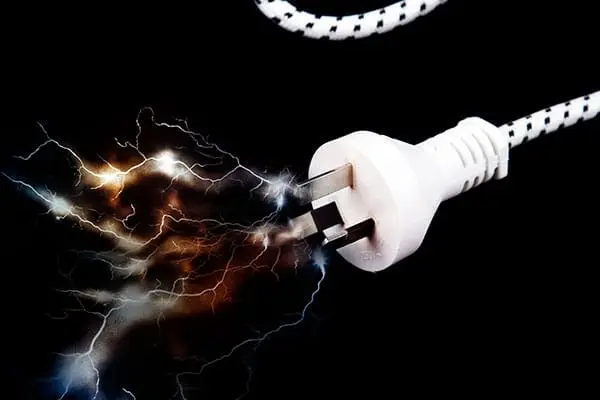Electrical devices can spark or give off a shock when touched. It’s due to various underlying issues or faults in the electrical system. Here are some common causes:
- Loose Wiring: Loose or damaged electrical connections within the device or in the wiring system can cause sparks and shocks. When wires are not securely connected, they can create arcing, which results in visible sparks.
- Short Circuits: A short circuit occurs when two or more wires with different electrical potentials come into contact. This can cause a sudden and significant flow of electricity, leading to sparks and potential shocks. Short circuits often result from damaged insulation or faulty wiring.
- Overloaded Circuits: Overloading a circuit by connecting too many devices or appliances to it can cause excessive heat and result in sparking or overheating. Circuit breakers or fuses are designed to trip or blow to prevent electrical fires in such situations.
- Ground Faults: A ground fault occurs when electrical current flows through an unintended path to the ground, rather than following the intended circuit. Ground faults can be dangerous and are typically detected by Ground Fault Circuit Interrupters (GFCIs), which shut off power when they sense such imbalances.
- Damaged or Defective Devices: Faulty or damaged electrical devices, such as outlets, switches, or appliances, can be a source of sparks and shocks. Frayed cords, exposed wires, or damaged insulation are common culprits.
- Aged or Worn Wiring: In older homes, wiring systems may deteriorate over time, leading to increased risk of sparking and electrical shocks. Outdated wiring materials, like knob and tube or aluminum wiring, may be more susceptible to these issues.
- Moisture and Corrosion: Water and moisture can compromise the integrity of electrical connections and insulation, increasing the likelihood of sparking and shock hazards. This is particularly common in damp or outdoor locations.
- Lightning Strikes: Lightning strikes can introduce a massive surge of electrical energy into a home’s electrical system, causing sparks, fires, and potential damage to electronic devices.
- Overheating: When electrical devices, circuits, or components become excessively hot due to overuse, poor ventilation, or other factors, they can spark and pose a fire risk.
- Damaged Insulation: Insulation around wires is crucial for preventing electrical contact and potential shocks. If the insulation is damaged or compromised, there’s a risk of sparks and shocks.
It’s essential to address sparking and shock issues promptly, as they can pose serious safety risks, including electrical fires and personal injury. If you experience these problems, it’s best to turn off the power to the affected area and seek professional assistance from a licensed electrician. Electrical safety measures, such as routine inspections, using GFCIs, and not overloading circuits, can help prevent many of these issues from occurring in the first place.
If you still have questions, feel free to contact us: Contact Gowdy Electric

